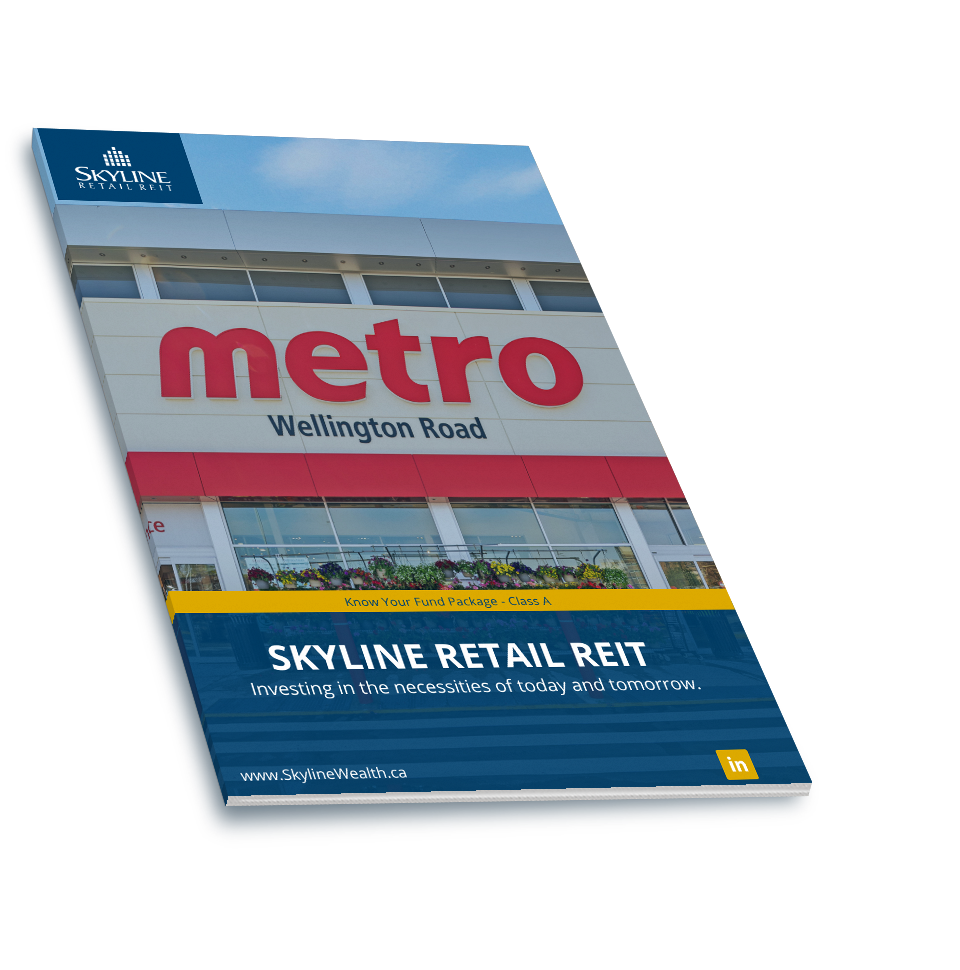About the Fund
Skyline Retail Real Estate Investment Trust (REIT) is a portfolio of diversified, 100% Canadian retail properties, with a focus on properties anchored by “everyday essential” services such as grocery and pharmacy. With an experienced management team, this investment product operates with historically high occupancy and looks for opportunities for organic growth, all resulting in historically stable investment performance. This investment is available to accredited investors.




Message to Investors
Skyline Retail Real Estate Investment Trust (REIT) focuses on properties anchored by trusted national brands with long-term leases, rooted in “everyday essential” products and services. The fund is designed to be growth-oriented, aiming to accelerate growth over time while providing tax efficiencies to investors.
Skyline Retail REIT mainly focuses on acquiring properties in Canada’s secondary and tertiary markets. It seeks assets that are centrally and strategically located in high-traffic areas allowing for greater visibility and customer accessibility. Skyline Retail REIT’s tenant mix primarily comprises grocery, pharmacy, general stores, fast food, liquor, fitness, and banking. Connect with a Skyline Wealth Management Advisor today to learn more about how Skyline Retail REIT may be a great investment for your portfolio.
Gordon Driedger
President, Skyline Retail REIT
Fund Stats2
$15.50
$0.996
6.43%
Portfolio Stats3
$1.62 B
97.0%
5.32 MM
5.29 years
5
115
Historical Performance4
8.40%
11.98%
11.73%
12.71%
12.38%
Investment Highlights
- $50,000 Minimum Investment
- Registered Account Eligible (RRSP, TFSA, RRIF, etc.)
- Potential Tax Efficiency
- No Redemption Fees5
Download the Skyline Retail REIT Info Package




